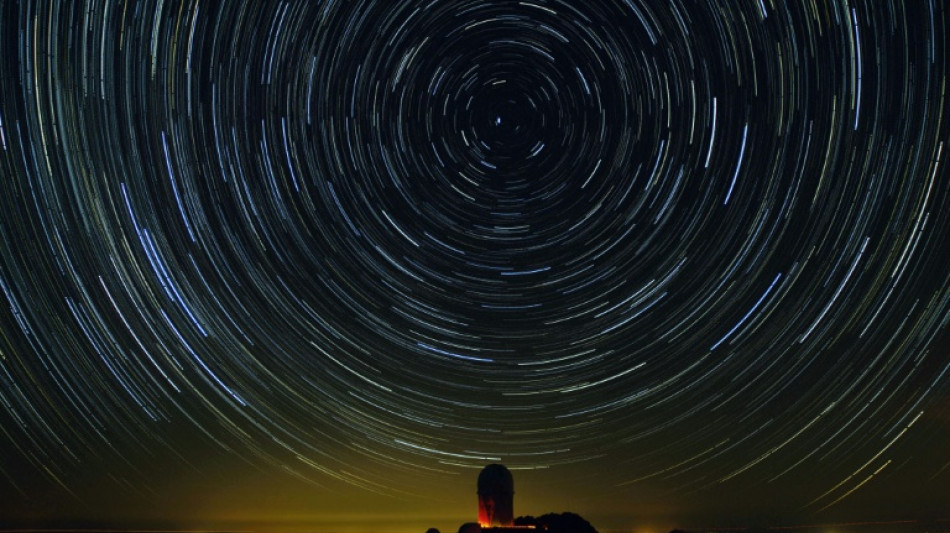
-
 Trump administration begins release of Epstein files
Trump administration begins release of Epstein files
-
UN Security Council votes to extend DR Congo mission by one year

-
 Family of Angels pitcher, club settle case over 2019 death
Family of Angels pitcher, club settle case over 2019 death
-
US university killer's mystery motive sought after suicide

-
 Rubio says won't force deal on Ukraine as Europeans join Miami talks
Rubio says won't force deal on Ukraine as Europeans join Miami talks
-
Burkinabe teen behind viral French 'coup' video has no regrets

-
 Brazil court rejects new Bolsonaro appeal against coup conviction
Brazil court rejects new Bolsonaro appeal against coup conviction
-
Three-time Grand Slam winner Wawrinka to retire in 2026

-
 Man Utd can fight for Premier League title in next few years: Amorim
Man Utd can fight for Premier League title in next few years: Amorim
-
Pandya blitz powers India to T20 series win over South Africa

-
 Misinformation complicated Brown University shooting probe: police
Misinformation complicated Brown University shooting probe: police
-
IMF approves $206 mn aid to Sri Lanka after Cyclone Ditwah

-
 Stocks advance as markets cheer weak inflation
Stocks advance as markets cheer weak inflation
-
Emery says rising expectations driving red-hot Villa

-
 Three killed in Taipei metro attacks, suspect dead
Three killed in Taipei metro attacks, suspect dead
-
Seven Colombian soldiers killed in guerrilla attack: army

-
 Amorim takes aim at Man Utd youth stars over 'entitlement'
Amorim takes aim at Man Utd youth stars over 'entitlement'
-
Mercosur meets in Brazil, EU eyes January 12 trade deal

-
 US Fed official says no urgency to cut rates, flags distorted data
US Fed official says no urgency to cut rates, flags distorted data
-
Rome to charge visitors for access to Trevi Fountain

-
 Spurs 'not a quick fix' for under-fire Frank
Spurs 'not a quick fix' for under-fire Frank
-
Poland president accuses Ukraine of not appreciating war support

-
 Stocks advance with focus on central banks, tech
Stocks advance with focus on central banks, tech
-
Amorim unfazed by 'Free Mainoo' T-shirt ahead of Villa clash

-
 PSG penalty hero Safonov ended Intercontinental win with broken hand
PSG penalty hero Safonov ended Intercontinental win with broken hand
-
French court rejects Shein suspension

-
 'It's so much fun,' says Vonn as she milks her comeback
'It's so much fun,' says Vonn as she milks her comeback
-
Moscow intent on pressing on in Ukraine: Putin

-
 UN declares famine over in Gaza, says 'situation remains critical'
UN declares famine over in Gaza, says 'situation remains critical'
-
Guardiola 'excited' by Man City future, not pondering exit

-
 Czechs name veteran coach Koubek for World Cup play-offs
Czechs name veteran coach Koubek for World Cup play-offs
-
PSG penalty hero Safonov out until next year with broken hand

-
 Putin says ball in court of Russia's opponents in Ukraine talks
Putin says ball in court of Russia's opponents in Ukraine talks
-
Czech Zabystran upsets Odermatt to claim Val Gardena super-G

-
 NGOs fear 'catastrophic impact' of new Israel registration rules
NGOs fear 'catastrophic impact' of new Israel registration rules
-
US suspends green card lottery after MIT professor, Brown University killings

-
 Arsenal in the 'right place' as Arteta marks six years at club
Arsenal in the 'right place' as Arteta marks six years at club
-
Sudan's El-Fasher under the RSF, destroyed and 'full of bodies'

-
 From farms to court, climate-hit communities take on big polluters
From farms to court, climate-hit communities take on big polluters
-
Liverpool have 'moved on' from Salah furore, says upbeat Slot

-
 Norway crown princess likely to undergo lung transplant
Norway crown princess likely to undergo lung transplant
-
Iraq negotiates new coalition under US pressure

-
 France's budget hits snag in setback for embattled PM
France's budget hits snag in setback for embattled PM
-
Putin hails Ukraine gains, threatens more, in annual press conference

-
 US suspends green card lottery after Brown, MIT professor shootings
US suspends green card lottery after Brown, MIT professor shootings
-
Chelsea's Maresca says Man City link '100 percent' speculation

-
 Dominant Head moves into Bradman territory with fourth Adelaide ton
Dominant Head moves into Bradman territory with fourth Adelaide ton
-
Arsenal battle to stay top of Christmas charts

-
 Mexican low-cost airlines Volaris and Viva agree to merger
Mexican low-cost airlines Volaris and Viva agree to merger
-
Border casinos caught in Thailand-Cambodia crossfire


The universe's accelerated expansion might be slowing down
The universe is still expanding at an accelerating rate, but it may have slowed down recently compared to a few billion years ago, early results from the most precise measurement of its evolution yet suggested Thursday.
While the preliminary findings are far from confirmed, if they hold up it would further deepen the mystery of dark energy -- and likely mean there is something important missing in our understanding of the cosmos.
These signals of our universe's changing speeds were spotted by the Dark Energy Spectroscopic Instrument (DESI), which is perched atop a telescope at the Kitt Peak National Observatory in the US state of Arizona.
Each of the instrument's 5,000 fibre-optic robots can observe a galaxy for 20 minutes, allowing astronomers to chart what they have called the largest-ever 3D map of the universe.
"We measured the position of the galaxies in space but also in time, because the further away they are, the more we go back in time to a younger and younger universe," Arnaud de Mattia, a co-leader of the DESI data interpretation team, told AFP.
Just one year into its five-year survey, DESI has already drawn up a map which includes six million galaxies and quasars using light that stretches up to 11 billion years into the universe's past.
The results were announced at conferences in the United States and Switzerland on Thursday, ahead of a series of scientific papers being published in the Journal of Cosmology and Astroparticle Physics.
DESI is on a mission to shed light on the nature of dark energy -- a theoretical phenomenon thought to make up roughly 70 percent of the universe.
Another 25 percent of the universe is composed of the equally mysterious dark matter, leaving just five percent of normal matter -- such as everything you can see.
- An inconstant constant? -
For more than a century, scientists have known that the universe started expanding after the Big Bang, 13.8 billion years ago.
But in the late 1990s, astronomers were shocked to discover it has been expanding at an ever-increasing rate.
This was a surprise because gravity from matter -- both normal and dark -- was thought to have been slowing the universe down.
But obviously something was making the universe expand at ever-faster speeds, and the name "dark energy" was given to this force.
More recently, it was discovered that the acceleration of the universe significantly sped up around six billion years after the Big Bang.
In the push-and-pull between matter and dark energy, the latter certainly seems to have the upper hand, according to the leading model of the universe called the Lambda CDM.
Under this model, the quickening expansion of the universe is called the "cosmological constant," which is closely linked to dark energy.
DESI director Michael Levi said that so far, the instrument's early results were showing "basic agreement with our best model of the universe".
"But we're also seeing some potentially interesting differences which could indicate that dark energy is evolving with time," Levi said in a statement.
In other words, the data "seems to show that the cosmological constant Lambda is not really a constant," because dark energy would be displaying "dynamic" and changing behaviour, De Mattia said.
- Slowing down in old age -
This could suggest that -- after switching into high gear six billion years after the Big Bang -- the speed at which the universe has been expanding has been "slowing down in recent times," DESI researcher Christophe Yeche said.
Whether dark energy does in fact change over time would need to be verified by more data from DESI and other instruments, such as the space telescope Euclid.
But if it was confirmed, our understanding of the universe will likely have to be changed to accommodate for this strange behaviour.
For example, the cosmological constant could be replaced by some kind of field linked to some as-yet-unknown particle.
It could even necessitate updating the equations of Einstein's theory of relativity "so that they behave slightly differently on the scale of large structures," De Mattia said.
But we are not there yet.
The history of science is full of examples in which "deviations of this type have been observed then resolved over time," De Mattia emphasised.
After all, Einstein's theory of relativity has withstood more than a century of scientific poking and prodding and still stands stronger than ever.
F.Schneider--AMWN


